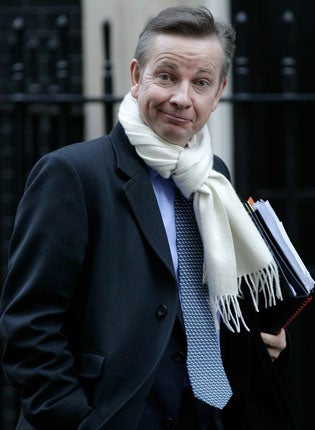Pupil premium 'robs Peter to pay Paul', critics claim

Your support helps us to tell the story
From reproductive rights to climate change to Big Tech, The Independent is on the ground when the story is developing. Whether it's investigating the financials of Elon Musk's pro-Trump PAC or producing our latest documentary, 'The A Word', which shines a light on the American women fighting for reproductive rights, we know how important it is to parse out the facts from the messaging.
At such a critical moment in US history, we need reporters on the ground. Your donation allows us to keep sending journalists to speak to both sides of the story.
The Independent is trusted by Americans across the entire political spectrum. And unlike many other quality news outlets, we choose not to lock Americans out of our reporting and analysis with paywalls. We believe quality journalism should be available to everyone, paid for by those who can afford it.
Your support makes all the difference.The Coalition Government will today unveil plans to give schools an extra £430 for every pupil they take in from disadvantaged homes.
The money, to be announced by Education Secretary Michael Gove with today's school budget settlement for 2011-12, will be available for every pupil whose parents have an income of less than £16,000 a year and are thus entitled to free school meals.
The policy is being portrayed as the "big concession" won from the Conservatives by the Liberal Democrats in the coalition agreement after the election. However, opposition MPs and teachers' leaders have warned that the scheme is "robbing Peter to pay Paul", as much of the cash will come from within the existing schools budget.
The Deputy Prime Minister, Nick Clegg, said the move would be of more benefit to disadvantaged children than keeping a cap on tuition fees and would greatly help increase social mobility. "When money is tight, you have to be really clear about what your priorities are," he said.
"One of mine has always been making sure that the most disadvantaged children in this country get the help they need.
"Despite the recent controversy, all the evidence shows the best way to help bright kids from poor families get to university is to target additional resources at them when they are younger and so give them a head start."
However, Labour's shadow Education Secretary, Andy Burnham, said: "The pupil premium is a con. There is no extra money for schools. So this premium, which was meant to be additional money for the most deprived, will simply recycle funds from one school to another."
Brian Lightman, the general secretary of the Association of School and College Leaders, added: "The big question is whether this is new money or recycled money. If it is redistributed money already in the system, it will only plug the holes left by cuts elsewhere.
"The devil is in the detail. There are still too many unknowns about how distribution of the premium will work to say whether it will make a real difference to schools and pupils."
Mr Gove has acknowledged that the scheme could lead to a cut in funding for some schools. Those in the leafy suburbs with fewer pupils entitled to free school meals would seem to be the most likely candidates for cuts.
Under the Government's plans, there will be £625m for the scheme next year rising to £2.5bn by 2014/5. Around 1.4 million children are expected to benefit from it next year.
As the money earmarked for the premium rises year on year, though, the amount per child will also rise and more children will be covered by the scheme.
Schools will be free to spend the money as they wish and are most likely to spend it on one-to-one tuition for children struggling to keep up in class, or to reduce class sizes. One of the difficulties will be to monitor expenditure to ensure that the money is spent on the most disadvantaged pupils – and not just swallowed up in the general schools budget.
Join our commenting forum
Join thought-provoking conversations, follow other Independent readers and see their replies
Comments